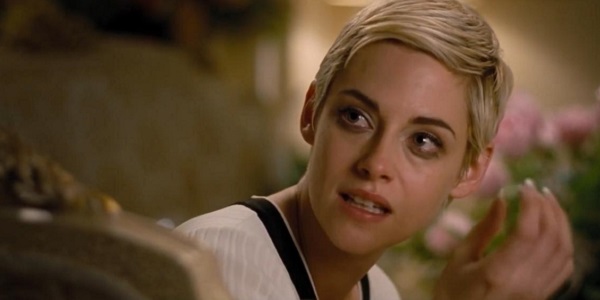SEBERG: Not the Story She Deserved

Lee Jutton has directed short films starring a killer toaster,…
Even if you don’t know Jean Seberg by name, you likely know her by sight. Seberg’s iconic performance opposite Jean-Paul Belmondo in Jean-Luc Godard’s Breathless is one of the most recognizable of the early French New Wave: the gamine on the Champs Elysee in a Herald-Tribune t-shirt and jeans memorialized on many a dorm room poster. (After all, how else will your college conquests know you’re cultured?) What many don’t know is that behind the pixie cut and wide eyes was a thriving political mind that believed firmly in equality for all.
Unfortunately, Jean Seberg’s activism, which was primarily financial, was also her downfall. After being driven to paranoid hysteria by the FBI’s infamous COINTELPRO program, which spied on her every move as a result of her connections to the Black Panthers, Seberg died mysteriously in 1979 at the age of 40. Her death is widely considered to have been a suicide, yet there’s no denying the U.S. government played enough of a role in her mental unraveling to have the responsibility for her death laid at its door.
It’s a tragic tale and an important one. The film Seberg, directed by Benedict Andrews (Una) and starring Kristen Stewart in the titular role, attempts to tell it. Yet for all of its admirable intentions, the film’s flimsy storytelling does a disservice to Seberg’s legacy.
I Spy…
The film kicks off in 1968 when Seberg, flying from France to Hollywood to audition for some movie roles, encounters activist Hakim Jamal (Anthony Mackie) on the plane. When Jamal and members of the Black Panthers get off the plane and raise their fists for the cameras in a symbol of Black Power, Seberg joins them. Is she merely causing a scene in order to get the Hollywood gossip rags talking about her again, or is she using her own fame to draw attention to a cause she cares about? It quickly becomes clear that, for Seberg, it is the latter.
Soon Seberg and Jamal embark on a fiery affair, despite his marriage to fellow activist Dorothy (Zazie Beets). Jamal invites Seberg to visit the school he and Dorothy run, where Seberg freely and happily writes them large checks, willing to do anything she can to help. Seberg then invites Jamal and members of the Black Panthers to her Hollywood home where they can speak to other moneyed liberals looking to help a worthy cause. Little does Seberg know that a rising star in the FBI, Jack Solomon (Jack O’Connell) has begun watching — and listening to — her every move as part of the agency’s ongoing investigation of the Black Panthers.

Solomon is at first glad to lend his extraordinary sound recording talents to the project, but he grows uneasy with the degree that his fellow agents, including the brash Carl Kowalski (a perfectly cast Vince Vaughn), are set on bringing down Seberg.
Kowalski and his ilk are willing to do anything, including calling Dorothy Jamal anonymously to play her a recording of her husband having sex with Seberg, plastering Jamal’s neighborhood with flyers advertising the affair, and spreading rumors that Seberg is pregnant with his child (the stress of which is a contributing factor to Seberg’s eventual miscarriage). How far is too far when it comes to carrying out the FBI’s twisted idea of justice?
…But Why?
With the exception of the gorgeous late 1960s period costumes courtesy of Michael Wilkinson (American Hustle, Justice League), I was greatly disappointed with Seberg. Stewart might be the spitting image of Seberg, but that alone doesn’t make her casting work here.
Ironically, in playing a woman whose life and career was destroyed because of the causes in which she believed, Stewart’s performance lacks conviction. Her delivery of every line falls flat, lacking the inner fire that drove Seberg to make the decisions she did, including joining the Des Moines chapter of NAACP at the age of 14 — an event that is referenced only briefly in the film.
This is also a problem — the audience is never given a glimpse into what might have radicalized this teenage girl from Iowa who was plucked from obscurity at the age of 18 to star as Joan of Arc in Otto Preminger’s Saint Joan. We know Seberg supports the Black Panthers in their fight for racial equality, but apart from it just being the right thing to do, we are not offered any deeper reason as to why.
Instead, Seberg’s portrayal in the film is that of a perfectly styled shell of a white savior, doing a disservice both to the woman herself as well as Stewart, a truly talented actress who is given little to do here besides rummage around her home in a fever pitch of paranoia and a variety of skimpy lingerie.

In contrast to the lack of depth given to Seberg, far too much time is devoted to FBI Agent Jack Solomon and his change of heart regarding the surveillance of Seberg. I question why it was necessary to elevate the character of Solomon to such a big role, and one that demands the audience find sympathy for him at that.
That Seberg often takes a backseat in her own life story to a man wrestling with his conscience over the destruction of her life signifies (along with the aforementioned lingerie and some unnecessary nude scenes) that this film filters a complex woman through an inexplicable male gaze. And yes, I am aware that Seberg was co-written by a woman (Anna Waterhouse, with Joe Shrapnel) and shot by a woman (the brilliant Rachel Morrison), but that doesn’t automatically make it feminist, let alone a good movie.
There are plenty of other weaknesses in the script for Seberg, including an extremely silly scene in which Solomon’s med student wife (Margaret Qualley) digs up all his Seberg research, accuses him of having an affair, and demands he tell her everything. As I have made clear, I have no desire to sympathize with Solomon, but I did find myself siding with him in this scenario.
After all, if you marry a man who you know works in surveillance for the FBI, why would you think he could possibly tell you anything about his work? How is a woman who is studying to be a doctor, at a time when it was still relatively revolutionary, so insecure about her marriage and so incapable of understanding what her husband does for work?
I know why this scene is in the film: it gives Solomon an excuse to share his misgivings with someone whose conscience can advise him to do the right thing. Yet just because something is taught in Screenwriting 101 doesn’t make it a smart choice for your script. And that perfectly summarizes what is wrong with Seberg: it takes one woman’s compelling life story and tries its damndest to fit it into the mold of a stereotypical historical biopic, instead of giving it the unique treatment it deserves.
Conclusion: Seberg
Despite the considerable talent involved, Seberg is not the story the titular woman deserved to have told about her.
What do you think? Did you know about Jean Seberg’s political side? What other actors would you like to see given the biopic treatment in 2020? Share your thoughts in the comments below.
Seberg was released in the U.S. on December 13, 2019 and in the UK on January 10, 2020. You can find more international release dates here.
Does content like this matter to you?
Become a Member and support film journalism. Unlock access to all of Film Inquiry`s great articles. Join a community of like-minded readers who are passionate about cinema - get access to our private members Network, give back to independent filmmakers, and more.
Lee Jutton has directed short films starring a killer toaster, a killer Christmas tree, and a not-killer leopard. Her writing has appeared in publications such as Film School Rejects, Bitch: A Feminist Response to Pop Culture, Bitch Flicks, TV Fanatic, and Just Press Play. When not watching, making, or writing about films, she can usually be found on Twitter obsessing over soccer, BTS, and her cat.













